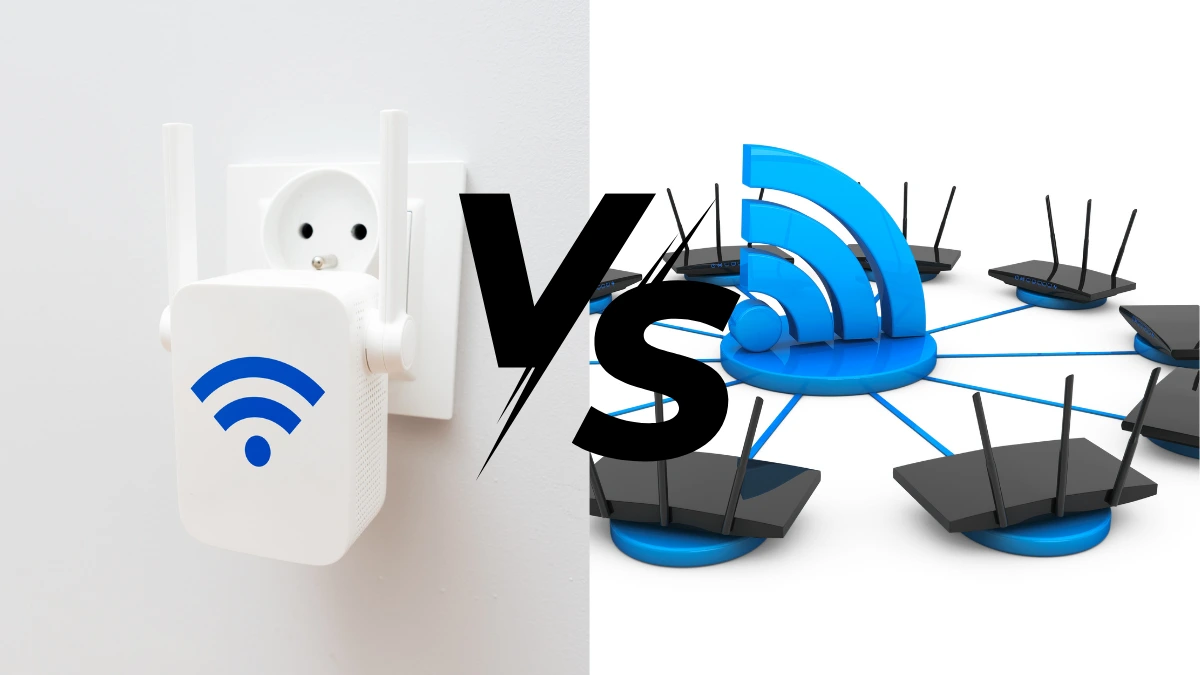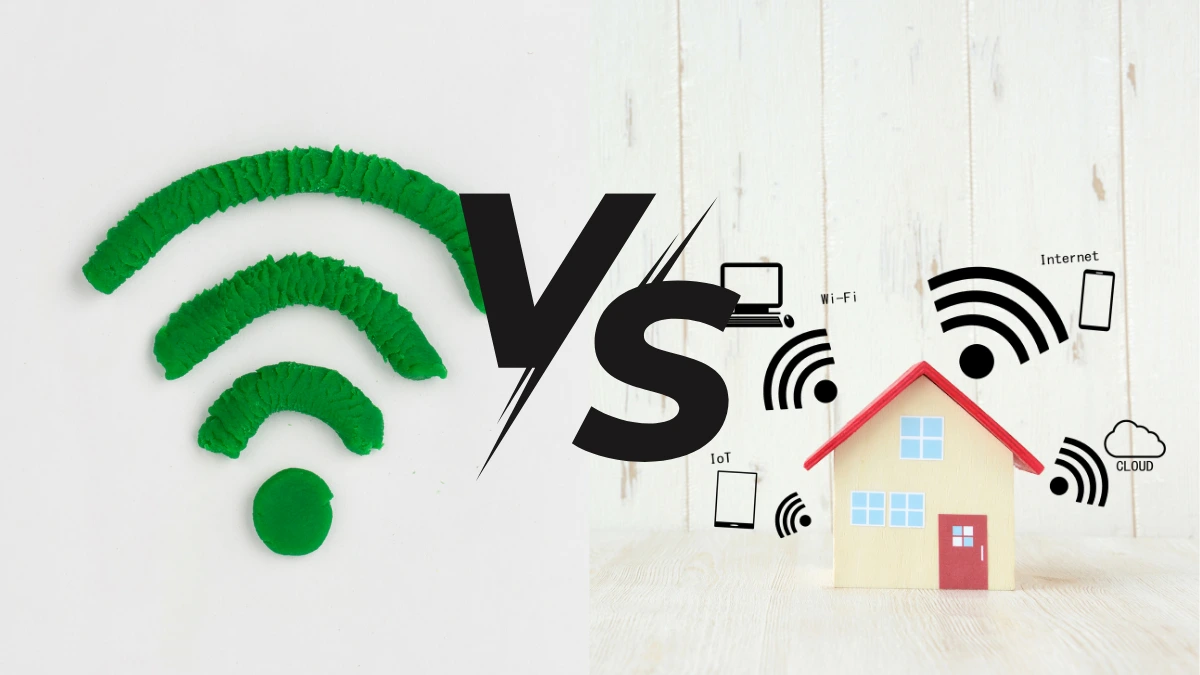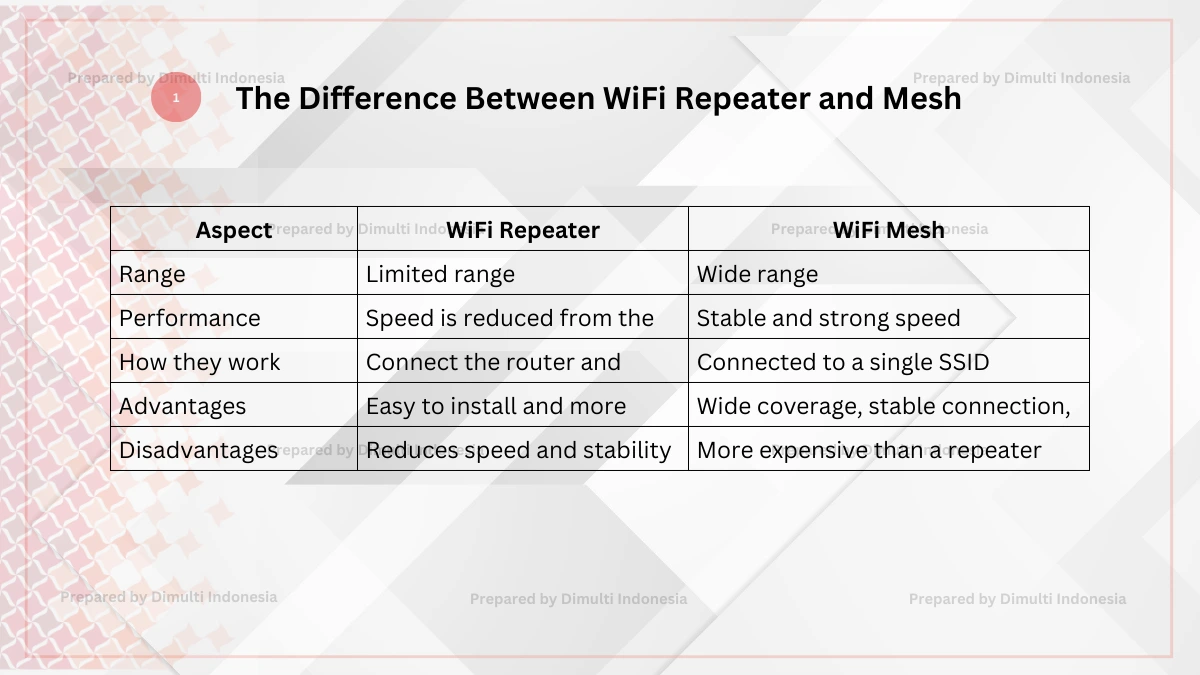A WiFi repeater and a WiFi mesh are the keys to remove dead zones where the area has low connection or is not previously covered by the internet. Although both maximize the expansion of internet connection, WiFi repeater vs mesh have some significant differences.
The differences between WiFi repeater vs mesh include range, performance, how they work, advantages, and disadvantages.
This article will delve into the important differences between WiFi repeater vs mesh to remove dead zones.
What is a WiFi Repeater?

As the name suggests, a WiFi repeater is an electronic device used to extend the range of a WiFi signal. In other words, a repeater acts as an amplifier and rebroadcaster of WiFi signals, enabling them to reach areas that were previously difficult to reach with the main signal.
A WiFi repeater amplifies and rebroadcasts WiFi signals by receiving signals from the main router and rebroadcasting them to a wider area with greater strength.
What is a WiFi Mesh?

WiFi mesh is a wireless network system that uses multiple devices (routers and satellites) to create a uniform and stable WiFi network across a large area. The purpose of this system is to provide internet connectivity without any dead zones.
WiFi mesh creates a single WiFi network with one SSID from several interconnected “nodes.” Nodes are divided into two types: those connected to the modem act as the main router, while the others act to spread WiFi throughout the area.
The Difference Between WiFi Repeater vs WiFi Mesh

A WiFi repeater and WiFi mesh are both used to remove dead zones, but they have some differences. Here are five differences between WiFi repeater vs mesh:
1. Range
WiFi repeater: Creates a new network with a limited range to cover dead zones.
WiFi mesh: Creates a wide and stable network throughout the entire dead zone area.
2. Performance
WiFi repeater: Speed is reduced from the main router and may be unstable.
WiFi mesh: Stable and strong speed throughout the entire area that requires internet.
3. How they work
WiFi repeater: Receives and rebroadcasts the existing WiFi network from the main router's signal source. Creates a separate network with a separate SSID and password.
WiFi mesh: Forms a WiFi network using multiple access points connected to a single SSID.
4. Advantages
WiFi repeater: Easy to install and more affordable.
WiFi mesh: Wide coverage, stable connection, and better performance.
5. Disadvantages
WiFi repeater: Reduces speed and stability from the main router's signal source.
WiFi mesh: More expensive than a repeater.
That’s the difference between WiFi repeater vs mesh that you can consider when choosing according to your personal needs.
If you need a simple and affordable solution to expand a WiFi network in a small area, a WiFi repeater is a good choice. However, if you need a wide, stable, and strong WiFi connection in all areas of your big house or office, you can choose a WiFi mesh.